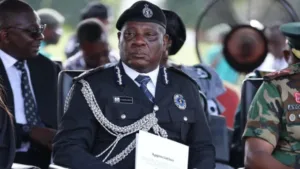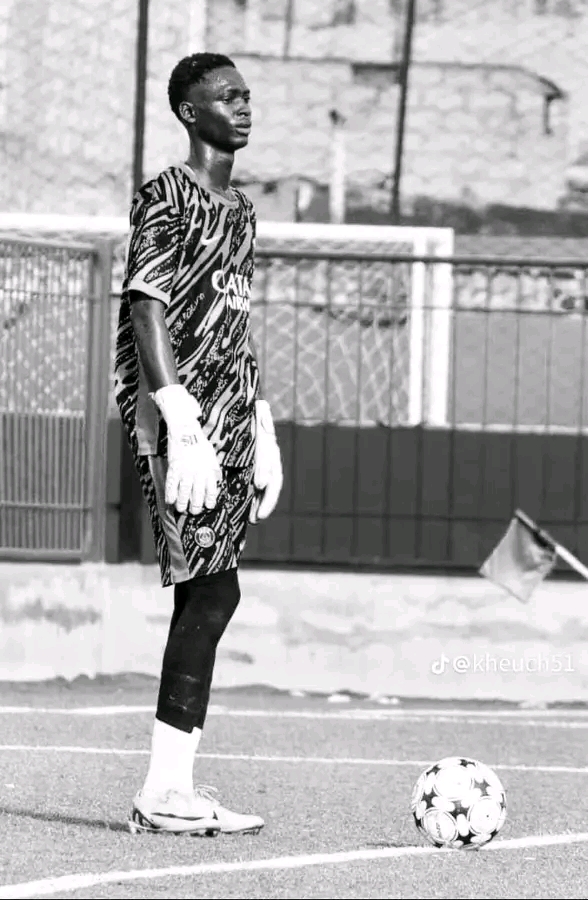The Inspector General of Police, Christian Tetteh Yohuno, has ordered the deployment of a special investigation team to probe the murder of 18-year-old Senegalese goalkeeper Cheikh Touré in Kumasi, Ashanti Region. The young athlete’s body was discovered on 17 October 2025 inside the Ebenezer Mortuary in Tafo, prompting joint efforts by Ghanaian and Senegalese authorities.
According to a statement from the Ministry of African Integration, Foreign Affairs and Senegalese Abroad, Touré travelled to Ghana under false promises of a football trial, a widely-publicised appointment that purportedly offered a pathway into European or North African club football. Instead, investigations suggest he became entangled in a criminal network involving fraud and extortion.
Police in Ghana are working closely with their Senegalese counterparts and the Senegalese Embassy in Accra. The IGP authorised homicide investigators and forensic specialists to lead the probe, citing “serious discrepancies” in initial statements and concerns that the crime may involve trafficking of young players.

Touré was identified as having trained at the Esprit Foot Yeumbeul academy, known for producing several young talents in Senegal. He is described as a promising goalkeeper who travelled to Ghana early in October 2025. During the visit, he reportedly received a call offering a trial in Morocco, yet the alleged club contacts diverted him to Kumasi where he ultimately lost his life.
Family members in Senegal were contacted by alleged kidnappers demanding ransom for his release. The young player’s entourage was reportedly unable to meet the demands and his tragic death followed. Ghanaian authorities say the deceased’s injuries are consistent with violent assault rather than accident, prompting special attention to the body’s arrival at the morgue and anomalies in accompanying documentation.
The case has reignited debate about the vulnerability of young African athletes who chase opportunities abroad through unverified channels. A 2024 ﹙FIFA﹚-led estimate suggests thousands of hopeful players are exploited annually by criminal networks masquerading as scouts and agents.
Ghana’s reaction has been swift. The Ghana Police Service has urged parents and academies to exercise caution when overseas trials are offered informally. Officials emphasised the importance of verifying authenticity through known clubs or formal association channels. Ghana’s immigration officials and sports ministry are liaising with counterparts to monitor movements of young footballers and prevent abuse of recruitment pathways.

For Senegal, the loss of Cheikh Touré has been deeply felt. The ministry’s communiqué expressed “deep compassion to the bereaved family” and reaffirmed its commitment to supporting a thorough investigation with Ghana. It also urged that all offers of trials be vetted and mediated through official sports authorities to curb such tragic abuses.
Within Ghana’s sports community, the incident has sparked reflection and action. Agents, academies and players are calling for a regulated registry of scouting agencies and trial programmes to protect minors and ensure transparency. Some regional youth coaches noted that hundreds of events each year lack official oversight, creating opportunities for maltreatment or extortion.
The IGP’s deployment of a specialised team signals the seriousness of the investigation. Sources indicate Ghana’s criminal investigations directorate will coordinate with the Ashanti Regional Police Command, while the Senegalese embassy in Accra will field delegates in Kumasi to assist with legal and repatriation procedures.
While the investigation is still in its early stages, authorities are pursuing several active leads including: the identity of the alleged trial organisers, the arrangements that brought Touré to Kumasi, contact networks used to communicate ransom demands, and possible linkages with cross-border trafficking syndicates. Ghana’s border and immigration units have also been alerted to monitor movement of young footballers and foreign nationals arriving under ambiguous pretences.
The death of Touré highlights systemic issues in African football pathways. Many young players, especially from Francophone West Africa, view football as one of the few routes out of poverty, making them targets for fraud. While high-profile transfers to European leagues dominate headlines, countless others pursue opportunities through informal routes with little protection or oversight.
Authorities in both Ghana and Senegal have committed to publishing periodic updates on the investigation’s progress. Ghana’s sports ministry has concurrently launched a review of overseas trial governance and is expected to propose stricter licensing for agents and more checks on academy-to-trial pathways.
For now, the focus remains on delivering justice for Cheikh Touré’s family and sending a strong message that Ghana will not tolerate scams or trafficking under the guise of football. The investigation may pave the way for cooperative frameworks between African nations to crack down on exploitation of young athletes and ensure safe, credible pathways in football.
Senegalese Footballer Cheikh Touré Found Dead in Ghana Amid Fraud Investigation

